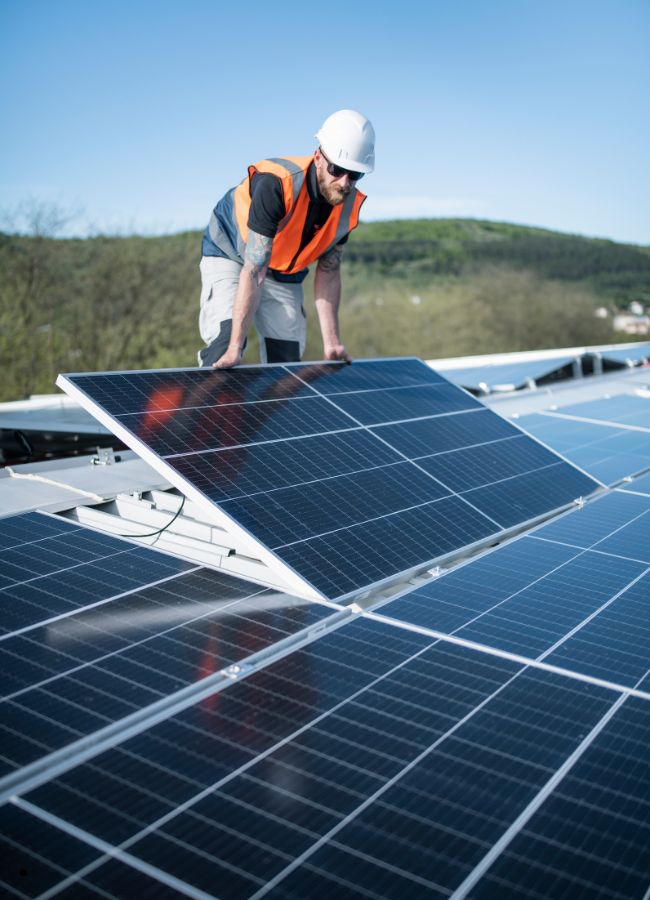With its potent and sustainable energy, the sun can benefit the environment and drastically lower your electricity costs. It is a wise choice to install solar panels for your home. However, it can be confusing to choose the best residential solar panels because there are plenty of options. You can follow this guide to learn the necessary steps to make an informed choice.
The blog will go through all the necessary points you need to keep in mind before making an investment in a solar panel system for your home.
Buying solar panels for your home in Australia is one of the smartest choices you can make for your family and the environment. With abundant sunshine across the country, you can turn your rooftop into a source of clean, free energy.
Not only will you save significantly on electricity bills, but you’ll also gain more energy independence and reduce your carbon footprint. Plus, with government rebates and advanced solar technology, going solar has never been more affordable or reliable.
Understanding Your Need for Solar Panels for Your Home
Determine how much energy your home uses before looking into the solar panel system for your home. Examining your electricity bills will tell you important information about how you use energy. Take into account elements like:
Average daily electricity consumption: This information is useful in choosing the right size solar panel.
Roof orientation and tilt: For optimal solar exposure, a roof that faces north and has a tilt angle that corresponds with your latitude is the best choice.
Shade: The efficiency of solar panels might be decreased by trees or neighboring buildings throwing shadows on your roof.
Budget: Establish your maximum initial investment and take potential long-term savings into account.
Get in touch with Goal Solar, one of the best solar panel companies in Australia, to know more about how to get the best return on your investment.
Types of Solar Panels Available
Solar panels mostly come in three types:
Monocrystalline: Generally, more expensive, but the most efficient with a high energy output.
Polycrystalline: Although polycrystalline is more economical than monocrystalline, it is less efficient.
Thin-film: Less efficient yet flexible and lightweight, ideal for unusual roof shapes.
The optimal option is determined by your roof space, energy requirements, and budget.
Solar panels for your home mostly consist of 3 elements:
Solar panels: Produce power from the sun.
Solar panel inverter: An inverter transforms DC power from solar panels into AC power for use in a home.
Mounting system: The mounting technique ties the panels to the roof firmly.
Battery (optional): Holds extra solar energy in reserve for use in times of high demand or blackouts.
Size of Solar Power System for Home and Incentives Available
A general rule of thumb is to install a system that generates approximately 80% of your annual electricity consumption. However, factors like roof space and budget also influence the system size.
The Australian government promotes the use of solar panels by providing a number of incentives. Examine your state’s offerings for feed-in tariffs, small-scale technology certificates (STCs), and
rebates. These can drastically lower your solar system’s initial cost.
How to Choose the Best Solar Retailer?
Choosing a reliable installer is essential to your residential solar panels project’s success. Take into account the following:
- Verify the installer’s accreditation with the Clean Energy Council (CEC).
- Find installers who have a solid track record and satisfied clients.
- Check the warranties offered on panels, inverters, and installation workmanship.
- Obtain multiple quotes from different installers for comparison.
The maintenance required of solar panels is minimal. However, to guarantee peak performance, it is advised to do routine cleaning and inspections. A lot of solar systems have monitoring tools that let you keep tabs on how much energy is produced and used.
Investing in solar panels is a long-term commitment that can yield substantial financial and environmental benefits. By carefully considering your energy needs, exploring different options, and choosing a reliable installer, you can make an informed decision that maximizes your return on investment.



